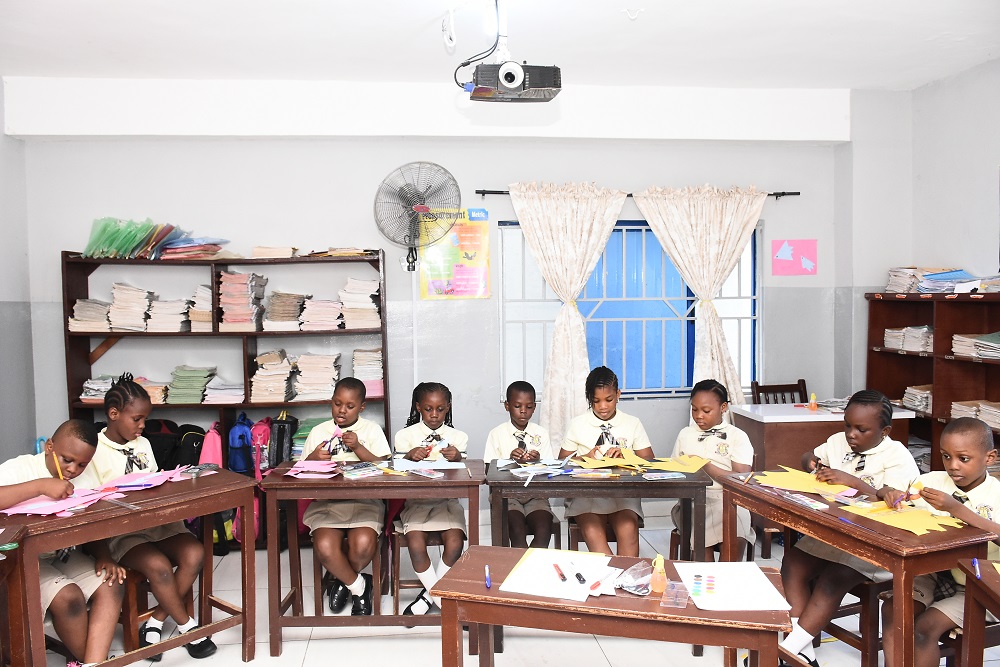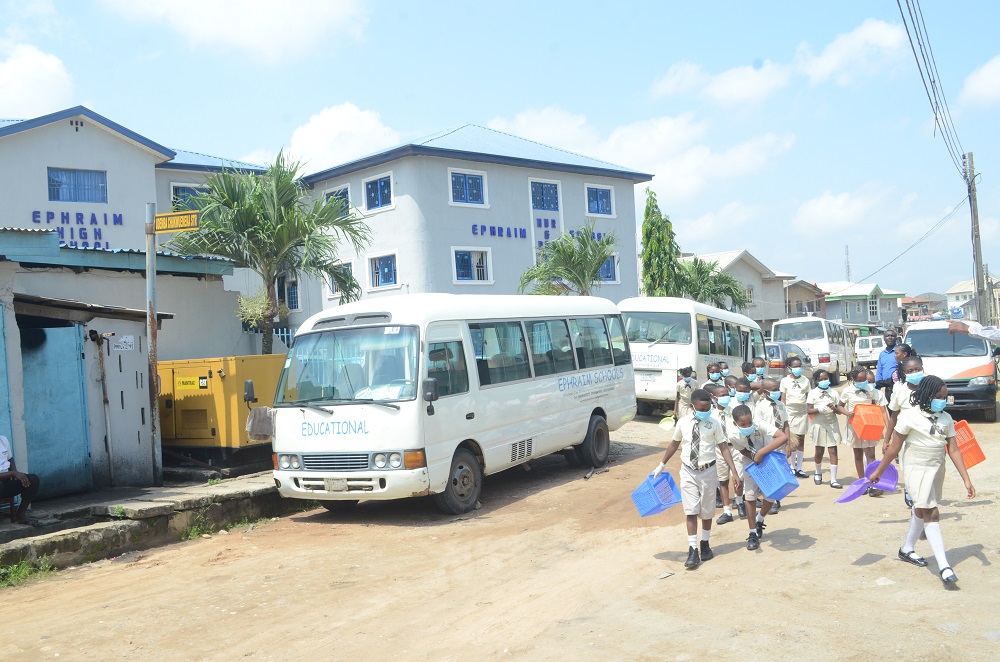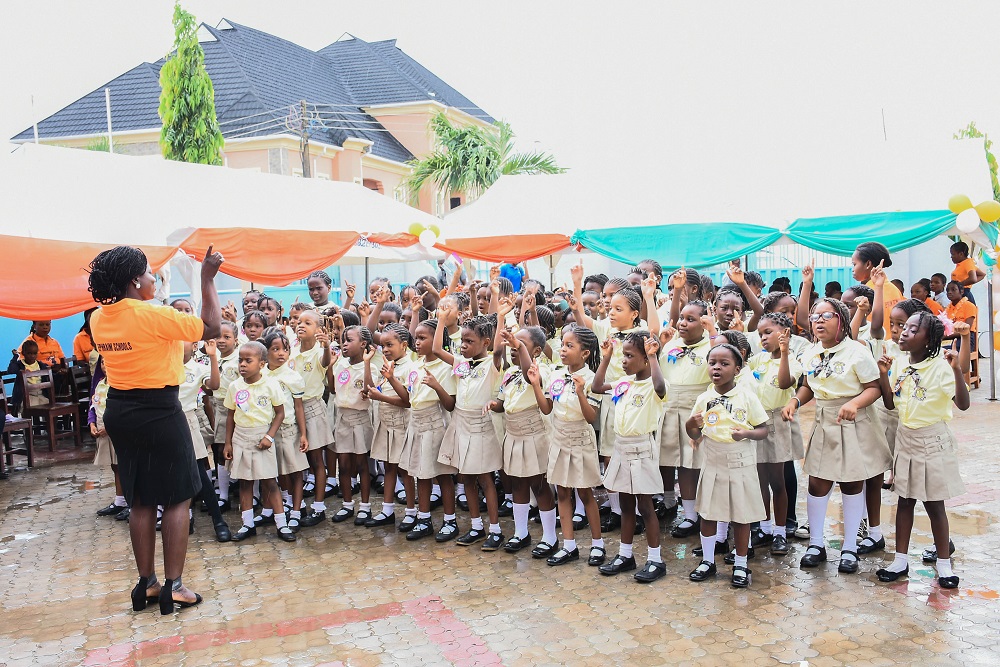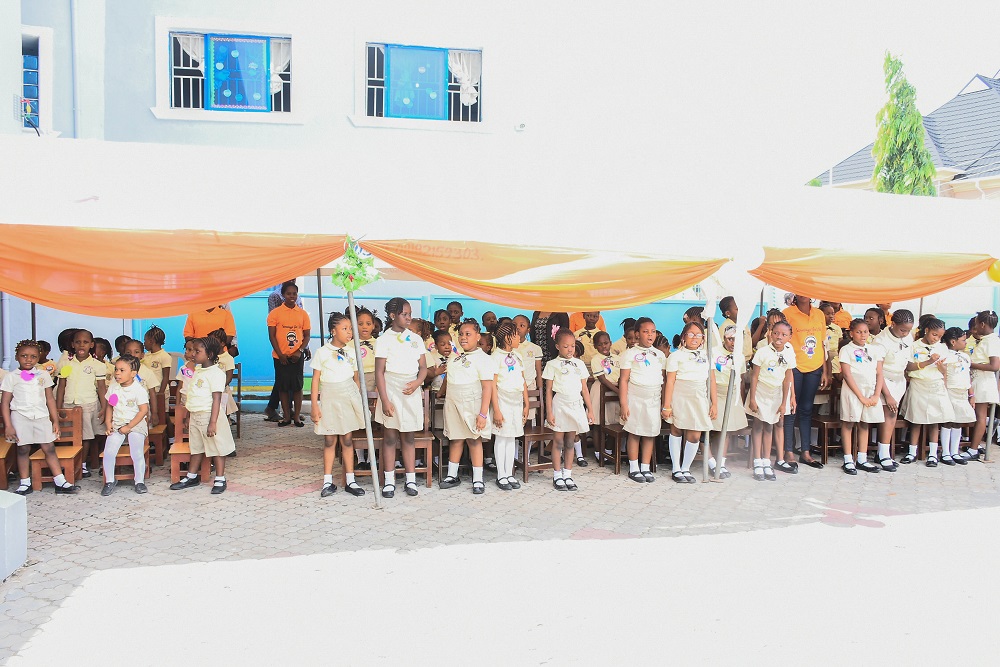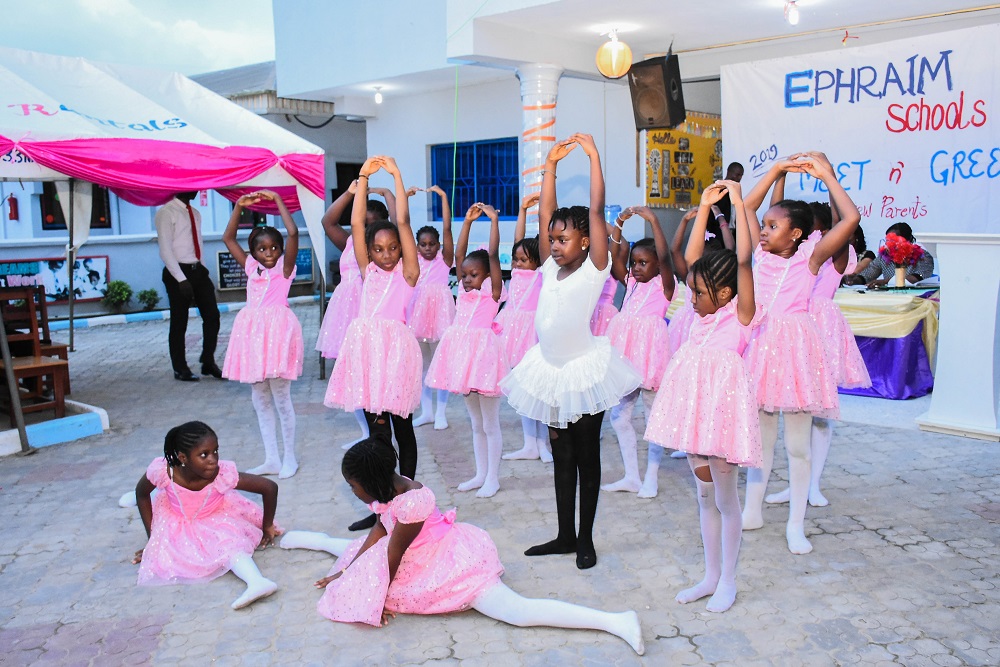PRIMARY SCHOOL
In Ephraim Primary School, the formative years are set to achieve a secure level of functionality and effectiveness in the core skills which include: reading, oral and written communication, inquiry and research, and dexterity with number work.
These are the important prime factors, without which further progress in the students’ learning can be inhibited.
In addition, through a terminal, projects and standardized internationally accepted the best practice of teaching and learning using our interactive IP-board, the pupils also acquire knowledge, skills, and understanding about their world through environment learning and excursions.
They are taught to inquire, use and apply skills learned and develop international-mindedness as they explore the global perspectives of various aspects of their learning.
LOWER PRIMARY (GRADE 1 – 3)
Our objectives during the early years of primary education include the following:
- To ensure that pupils receive optimum general development
- To emphasize the importance of developing the core skills in Literacy and Numeracy.
- To offer further specialist tuition if the need is to pupils experiencing difficulties in achieving satisfactory performance levels.
- To provide a stimulating and enjoyable learning environment in which happiness and application flourish side by side.
- To guide, advise and train the child to develop appropriate behavioral skills at individual and group levels.
- To master eloquence in the second official language
- To offer the right learning situation within a well-supervised and caring environment to enhance self-esteem.
UPPER PRIMARY (GRADE 4 -GRADE 5)
Without losing sight of the initial objectives, as we move upward, the upper primary stage extends the challenges offered.
The curriculum becomes more specialized, with the addition of new knowledge and skill training as detailed below:
- The emphasis on the core skills continues, but increasingly, these skills are used to seek out information and solve problems.
- Specialist help also continues for those who have not yet achieved acceptable levels of skill.
- The use of new technologies in science and Information and Communication Technology and the development of practical skills through Arts and Craft as well as initiate the child into the modern world.
- The levels of demand in terms of self-discipline and personal organization are raised and responsibilities are increased at both individual and group levels.
- Cultural and environmental studies advance knowledge of the world with various projects reinforcing the set learning goals.
- A solid foundation is created at this level to ensure a smooth transition into secondary school.
OUR CURRICULUM
The Primary Section of the Ephraim School runs the Nigerian-Federal and State curriculum with some extracts from the British Curriculum.
The method of teaching is based on Montessori Principles.
This curriculum reflects a thematic, creative learning and specific learning goals for every subject encourage the pupils to be independent, think for themselves and assume responsibility for their own learning.
This curriculum is also a child-centered and teacher-friendly curriculum.
It enables students to take responsibility for their learning by being involved in activities such as planning, researching, recording, and interacting with teachers and other students and assessing learning.
Our curriculum focuses on developing children’s learning through a structure based on learning goals.
These goals are specific statements of what children should know, be able to do or develop an understanding and of life.
SUBJECT OFFERED
Our pupils are exposed to subject specialists at an early age.
Aside from the core subjects; English Studies and Mathematics, we offer other subjects like:
Agricultural Science, Basic Science, Information Technology (IT), Social Studies, French, Music, Creative Arts, Physical and Health Education, Christian Religious Studies, Yoruba Language, Home Economics, Vocational, Handwriting, Mental Mathematics, Literacy, History, Current Affairs, Verbal and Non-Verbal Reasoning, Quantitative Reasoning and Phonics.
We are very proud of this relationship as we know that together we can ensure a fantastic future for the children.
Thank you for choosing us.
- Head Teacher
SCHOOL ASSESSMENTS, EXAMINATIONS, AND REPORTS:
Assessments are carried out continuously during the school year.
Reports are compiled every week in form of weekly tests ten times in a term.
Examinations are held at the end of Christmas term (Term 1) Easter Term (Term 2) and Summer Term (Term 3) i.e. thrice during the school year. End-of-Term Assessment is based on weekly tests, assignments, classwork, and weekly/ terminal projects.
The percentage of each parameter is calculated as follows:
- Classwork: 5%
- Homework: 5%
- Weekly Tests 10%
- Mid- Term Examination 20%
- Examination: 50%
The percentage changes based on the blueprint of the term.
You will receive a report weekly on weekly test and cumulative continuous assessment scores at the end of each term which will include a comment from the Class Teacher on the behaviour of the pupil throughout the term and a general comment on the academic performance by the Head Teacher
More information is contained within the report, but it is important to understand that the tests and examinations carry most of the assessment marks and it is vital that pupils are encouraged to study carefully for all their tests and examinations.
OUR IDENTITY
The school provides uniforms for pupils.
Children must come to school neatly dressed in clean uniform, white socks and black shoes (not patent leather) Clean sport wears, white socks and trainers are strictly for Fridays.
The school uniform is obtainable in the school.
Girls should have their hair neatly braided or plaited while boys on decent low cut.
Only moderate adornments for the hair which match the school uniform are allowed.
ACTIVITIES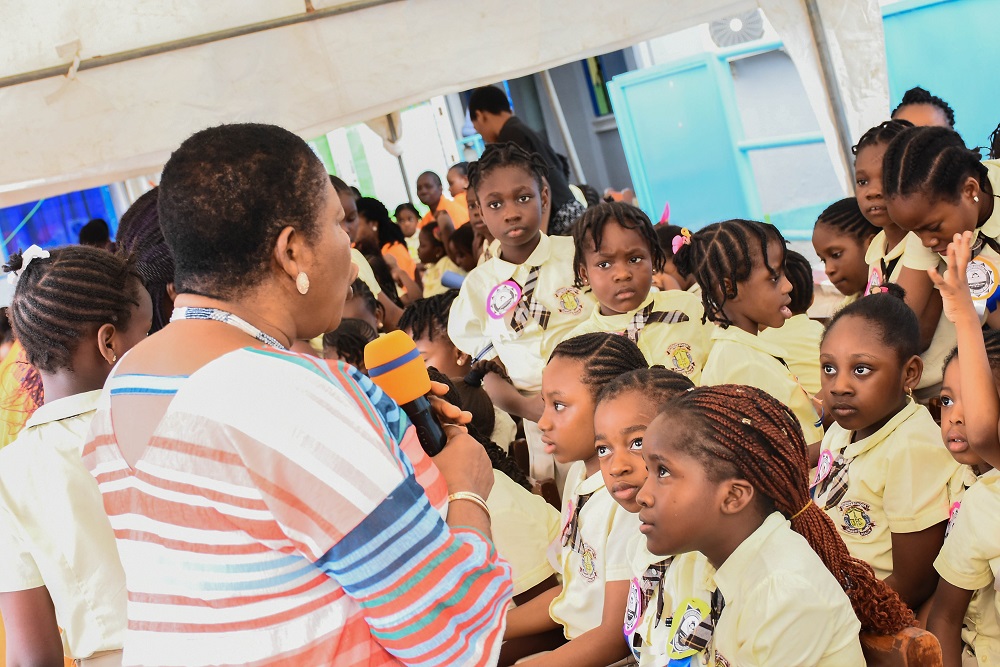
We have academic and co-curricula programmes lined up annually & biennially or termly to celebrate achievements and complement the school’s curriculum.
These have proven their worth as we record success daily in and outside the school.
Some of the exciting programmes featured are:
- Prize/ Giving Day/ Valedictory Service (Annually)
- Tea party (Termly)
- Prayer and Fasting Day (Termly)
- Colour Day (Termly)
- Spelling Drill (Weekly)
- Mathletics (Annually)
CO-CURRICULUM ACTIVITIES
- Swimming
- Music
- Ballet

